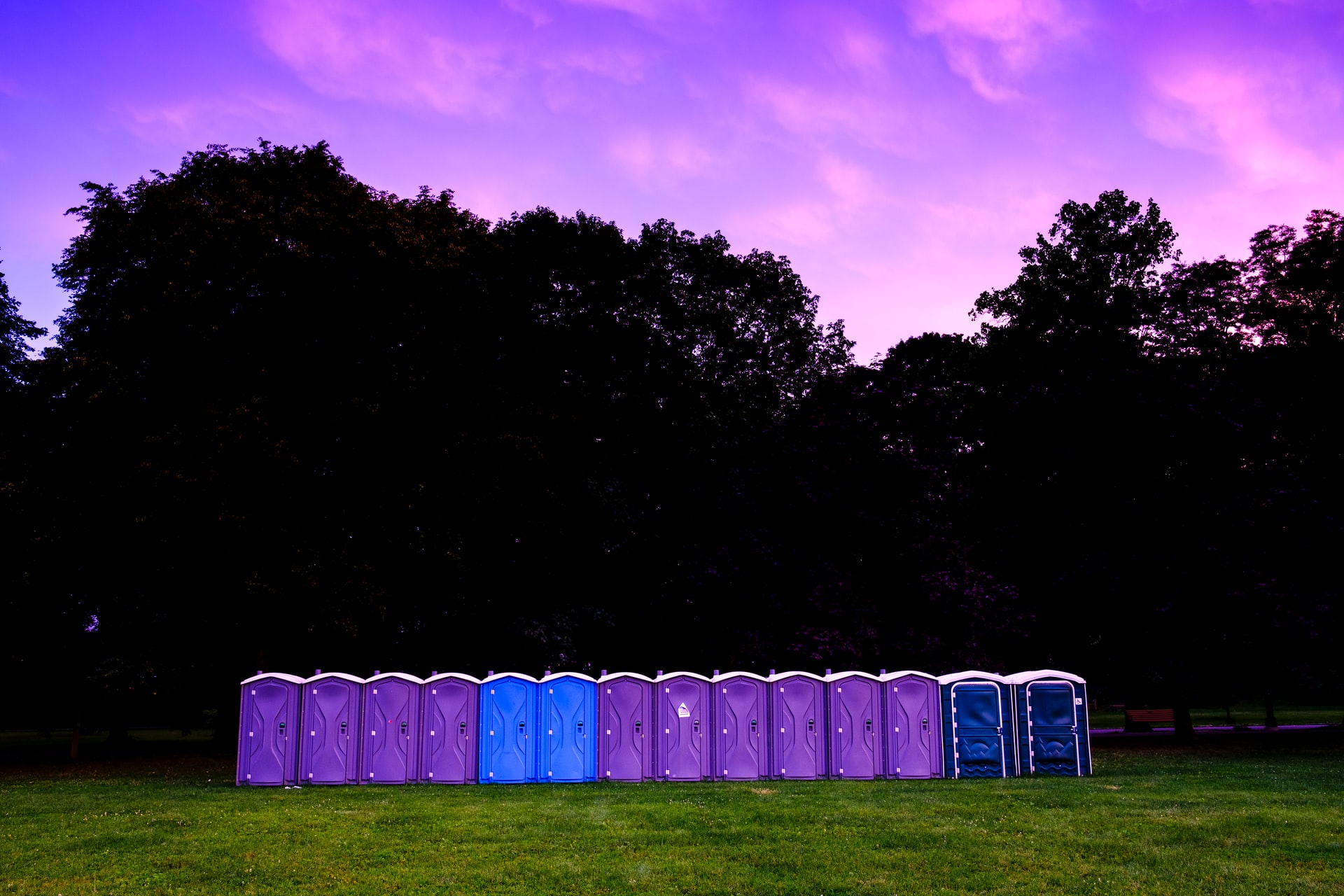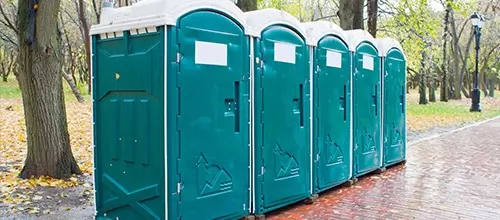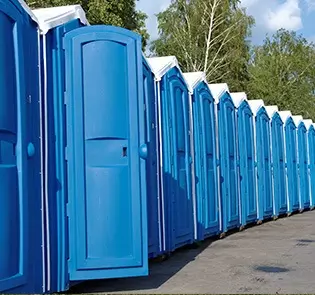A common question when hiring a portable toilet is: How Often Does A Portable Loo Need Emptying? We look at what you need to know about emptying your toilet.
Portable toilets are commonplace for many construction and camping facilities, especially when the site does not have fresh water or a water tank. Festivals and other outdoor events benefit from the convenience of "porta potties", but how often should they be emptied?
How do you know when your portable toilet needs to be emptied?
When dealing with toilet waste and human waste, how often your toilets are emptied is essential to keeping up with health and safety guidelines. How and when these portable chemical toilets are emptied is essential to maintaining the health of your customers, colleagues and the general public. If you fail to empty them as often as you should, you pose a severe risk to people at your event, and your company could be breaking HSE law.
Cleaning and following proper maintenance of portable toilets is more complicated than you assume, as bacteria can quickly build up due to the increased foot traffic in such areas. Not only do you have to empty and carefully pour away the wastewater, but you must manage the chemicals that break down and keep the portable loo hygienic. Toilet paper and sanitisers must also be topped up with each porta potty that is on your site.
This article describes how often you need to be emptying your portable and camping toilets, how to remain environmentally friendly and where is suitable for emptying them.
How often should a portable loo be emptied?
BSI standards outline how often you should empty portable toilets to ensure the best hygiene is maintained. Typically, you should carry out cleaning and emptying once a week, unless stated otherwise in your toilet hire contract.
his recommendation does come from the basis that a minimum of seven people will be using and flushing the toilet, and if higher numbers frequent the loo, you will be required to clean it more often.
Your standard chemical toilet is suitable for seven people on a 40-hour working week, and HSE guidelines enforce you must provide more toilets for more people and longer hours.
Of course, you don't want your guests to have to wait for the toilet, especially while one is being cleaned.
Businesses need to cater for their employees and customers during outdoor events, so it's advised to invest in multiple toilets. This means more cleaning will be required.

For many large events (such as festivals and concerts), where portable toilets will be located at multiple parts of the site, cleaning should happen once every two days.
For every one person that visits the toilet, especially considering events where food and drink are being served, you should enlist employees to clean, maintain and restock toilet rolls, soap, sanitiser and more. It's also normal to consider the contact surfaces, such as the taps and door handles.
You want to be regularly cleaning these surfaces, as users can quickly spread disease when touching contaminated materials. It's for this reason that many events and companies hire cleaners to ensure the job is done regularly and safely. When dealing with sewage and septic tanks, you want an efficient service, so you don't have to get your own hands dirty.
Where Does Portable Toilet Waste go?
Most portable toilets have a holding tank, meaning they can fill and hold a small amount of waste before being emptied. If they are mains connected, however, they will require less emptying.
Most units will have a flow indicator on the side, showing you how full the tank is. Using a large vacuum, the hire company will typically empty your waste through the output hole and transfer it to a cleaning facility to dispose of safely.
While most portable toilets can operate by dumping mass amounts of liquid and waste into their holding tanks or bins, you don't want your porta potty to reach the point where it's almost full. Utilising proper sanitisation companies to cover the emptying and cleaning system is worth your money, especially to ensure it's done safely.
Cleaning portable toilets is a meticulous process, and the liquid and materials flushed away must be disposed of carefully. Human waste can transport viruses and illnesses, causing a severe emergency when spread around large groups such as festivals, where portable toilets are more likely to be found.
How does a portable toilet work?
Unlike household toilets, porta potties are not connected to sewer lines, and therefore the waste is stored in holding tanks, typically located beneath the toilet.
This allows portable toilets to be used in various spaces, for corporate and entertainment events in the middle of a field, for example.
When you pump the flush, chemicals are introduced to prevent germs and break down the waste, instead of water (like in a conventional toilet).

These chemicals can also help prevent smells from the waste as it sits in the holding tank. The flush operates via a hand or foot pump, which creates pressure for the waste and chemicals to be transported through the pipes to the tank below.
Accessibility is the main advantage of portable toilets, meaning you can provide clean and professional toilet facilities for guests no matter your location.
Chemical Disposal Points
When looking at portable toilets on RVs and Campervans, you are dealing with a different problem entirely. Similar services do exist for cleaning and emptying these toilets, but it's typically the owners' responsibility to cover this themselves.
Most camping sites will have a chemical disposal point designed for this very reason. Due to the smell, this is usually located away from any campers: because no one would pay to pitch up next to it!
The manufacturer's instructions for your particular campervan model will indicate where the "cassette" is located. This is the storage unit for the waste produced by the toilet: which can be accessed from both the inside and outside of the vehicle.
Full cassettes can weigh upward of 15kg, especially when you haven't emptied them in a long time. This isn't a case of transporting a bucket; instead, you may need to park your motorhome closer to the disposal site.
Regular Maintenance
Remember that the more often the usage of the portable toilet, the more often it'll need emptying. When you hire a porta potty, you often receive emptying services included in the cost, but always check with your provider beforehand. For more information on portable toilet hire, and how to enquire about next-day delivery, get in touch with our expert team today.
Are you looking for construction site toilet hire in Cheltenham, Tewkesbury, Gloucester, Stroud or Cirencester? Find out further information on portable toilet hire near me in Cheltenham.
